1987 discovery of superconductor creates excitement
Updated: 2014-06-13 11:22
By May Zhou in Houston(China Daily USA)
|
||||||||
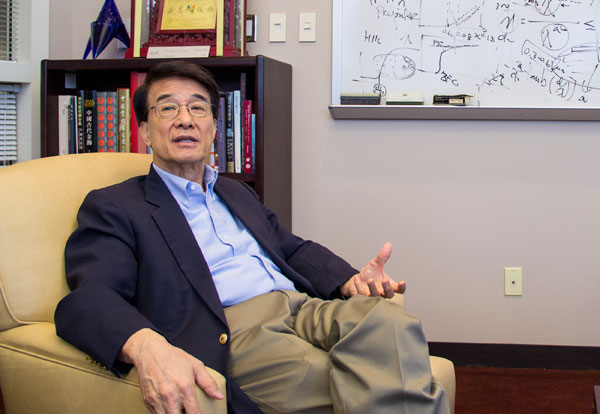 |
| Dr Paul Chin-wu Chu talks about his scientific career in his office at the Texas Center for Superconductivity at the University of Houston. May Zhou / China Daily |
Dr Paul Chin-wu Chu and his team announced the discovery a superconductor that operated at minus 139 degrees Celsius and giving scientists hope that superconductors could become useful in daily life one day. Soon other labs around the world elevated the temperature even higher.
On March 18, 1987, the American Physical Society held a last-minute meeting featuring 51 presentations on high-temperature superconductors. Chu was one of the key presenters at the event, which drew so much attention that it became known as the "Woodstock of physics".
Chu's discovery led to the creation of the Texas Center for Superconductivity at the University of Houston (TSCUH), and under his leadership as the founding director and chief scientist it has become a world -class research center.
Born in Hunan province, China in 1941, Chu grew up in Taiwan and came to the United States in 1963 for graduate study. After completing his PhD in 1968, he worked briefly at Bell Labs, Argonne National Lab, Stanford University, Cleveland State University and the Los Alamos Scientific Laboratory. He became a professor of physics at the University of Houston in 1979, a position he still holds today.

Chu has never stopped working in the lab trying to find ways to raise the temperature of superconductors.
"I still work seven days a week and spend a lot of time in the lab. If we could raise the temperature of superconductors to room temperature, there would be a major industrial revolution," he said.
At the current stage, however, its application is limited to space and some communications equipment, according to Chu.
Besides research, Chu has been involved in many other aspects of science over the years. He has been an administrator for academic and research institutes; holds positions on many science-review boards, research labs and research journals in the US, China and other countries, and works with the US government on policies related to science, national security and higher education.
"The US is facing many challenges right now. We are no longer the only economic super power; we still lead in science and technology but others are not that far behind us anymore. We studied ways to maintain our leader position in the world and made 10 recommendations last year," Chu said of CRU's work. The report, Ten Breakthrough Actions Vital to Our Nation's Prosperity and Security, was published last year.
Chu is a member on the Committee on Globalization of Science and Technology: Opportunities and Challenges for the Department of Defense (GSTOC). With GSTOC, the focus is on how to meet the challenges to US defense brought by modern technology.
Chu has been an adviser and reviewer to many national research institutions such as Bell Laboratories, Los Alamos Scientific Laboratory, and the Marshall Space Flight Center at various stage of his career.
"I just came back from University of California at San Diego. I was at Brookhaven National Laboratory two months ago to give them some guidance," said Chu.
As a scientist, Chu is very proud of his achievement as the president of Hong Kong University of Science and Technology (HKUST) from 2001 to 2009.
The first chief executive of Hong Kong Tung Chee-hwa, who believed that science and technology should be the engine to fuel Hong Kong's future economic development, personally extended the invitation to Chu to lead the newly established university.
"I eventually decided to take the offer because HKUST was young without baggage, the government and society were very supportive of it. Also, Hong Kong provides a good platform to connect mainland and Taiwan for research cooperation between the three regions and better understanding of each other," Chu explained.
More importantly, Chu wanted to build HKUST into a leading research university that would have an impact on not only Hong Kong, but also mainland and Asia.
To achieve that, Chu talked to many academic leaders worldwide and engaged more than 10 Nobel Prize winners as advisers, brainstorming for ideas to advance the school's research ability.
One of the major projects Chu accomplished while at HKUST was to establish the HKUST Jockey Club Institute of Advanced Study (IAS). As its founding director, Chu raised HK$2 billion to set it up. The institute seeks to be a platform for interaction among the world's foremost scientists and scholars as well as the development of both fundamental and applied research relevant to the region's socio-economic development.
Chu left HKUST in 2009 but the strategic plan he developed continues.
"Before I left, I also raised enough funds for four positions of institute-level professor, and I am very happy to learn that so far they have hired Christopher Pissarides, a 2010 Nobel Prize winner in economics as well as Ching Tang, the inventor of organic LED and a Wolf Prize winner to fill two of the positions," he said.
Chu first decided to work as the president of HKUST for three years to lay the foundation for its development, but he served for eight years.
"Hong Kong people are very flexible doing business and they tailored the term to meet my need," Chu said. While acting as its president, Chu kept his director position and lab at TSCUH. He returned to Houston once a month to monitor research progress.
Chu's work at HKUST was recognized and he was voted best university president for overall performance in 2002-2004 and 2006-2009, and second best in 2005. His effort paid off and the university rose to the top quickly. In 2013-14, the QS World University Rankings placed HKUST 34th in the world. It has been ranked Asia's No 1 by the independent regional QS Asian University Rankings three years in a row since 2011, although it dropped to the fifth in 2014.
"I'm very happy that now Hong Kong has a distinction between education universities and research universities," said Chu.
mayzhou@chinadailyusa.com

 Daredevil dancer conquers mountain
Daredevil dancer conquers mountain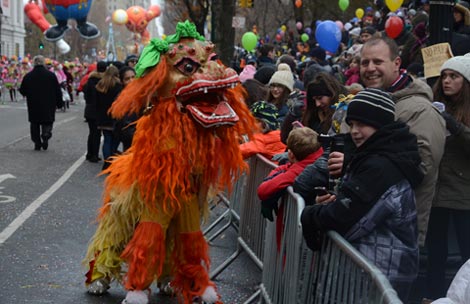
 Chinese float gives joy at Macy's parade
Chinese float gives joy at Macy's parade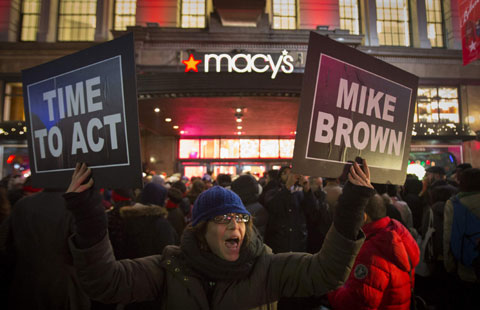
 Calm comes to troubled Ferguson
Calm comes to troubled Ferguson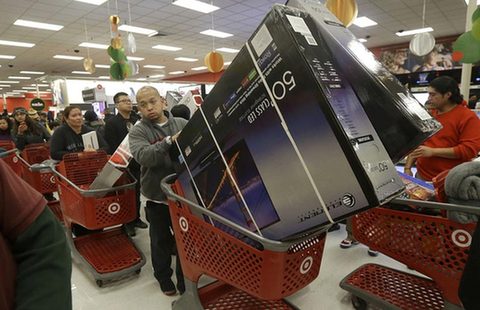
 6 things you should know about Black Friday
6 things you should know about Black Friday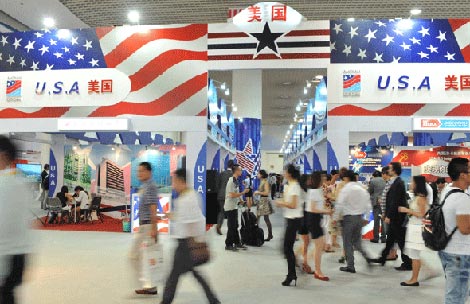
 Visa change may boost tourism to the US
Visa change may boost tourism to the US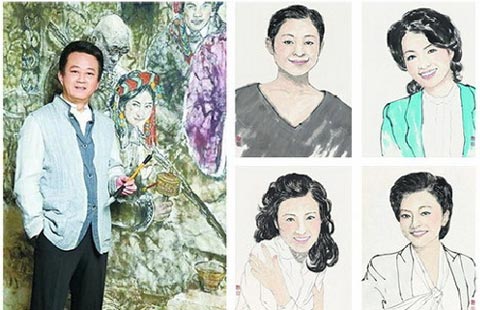
 China's celebrity painters
China's celebrity painters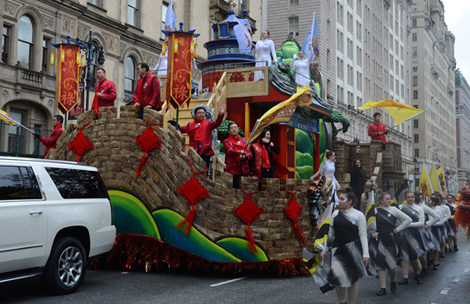
 Beauty of Beijing float making debut in Macy's parade
Beauty of Beijing float making debut in Macy's parade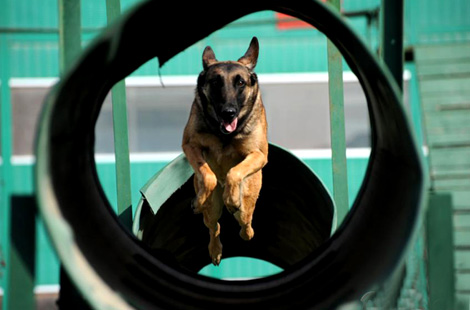
 Rescue dogs show skills in NW China
Rescue dogs show skills in NW China
Most Viewed
Editor's Picks
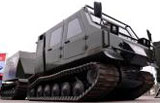
|
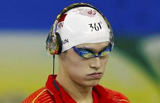
|
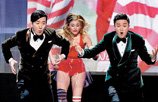
|
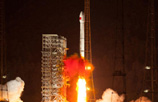
|
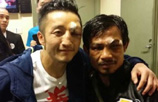
|
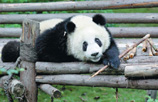
|
Today's Top News
China, US fight terror on the Internet
How to give is focus of philanthropy forum
China, US diverge on approaches to nuclear energy
China's local govt debt in spotlight
Macy's looks to appeal to more Chinese customers
Clearer view of Africa called for
Cupertino, California council is majority Asian
BMO Global Asset Management Launches ETFs in Hong Kong
US Weekly

|

|







